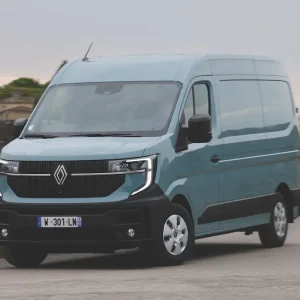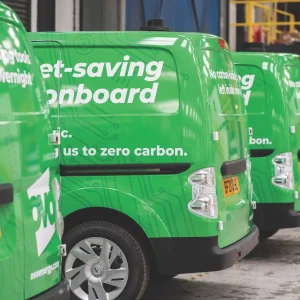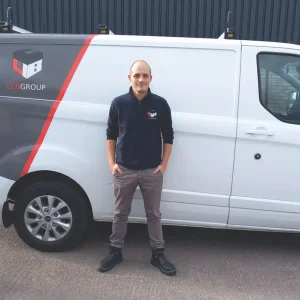Overseeing a fleet of more than 850 commercial vehicles is a demanding task, and especially demanding when it has increased significantly in size over the past four years. Clarion Housing Group’s fleet has trebled over that period, but Colin Hutt has managed to keep tight control over it while cutting costs and reducing risk – key reasons for What Van? to accord him with Fleet Manager of the Year award.
Clarion is the UK’s largest social housing association with more than 125,000 properties spread across 170 local authorities.
Clarion Response, its property repair and maintenance service, makes more than 250,000 visits to residents a year and executes over 1,000 repairs daily. They are carried out by 700 trades people, all of whom need transport for themselves and the equipment and materials they use.
Managing a team of four, fleet and environmental manager Hutt has of course had to deal with rising vehicle costs and supply shortages in recent times. He responded by identifying some lower-mileage vehicles on Clarion’s fleet list and ensuring their lease period was extended by 12 months.
Doing so saved the business £285,000 over the remaining two-and-a-half years of the lease agreement.
Working with Clarion’s fleet management partner, Hutt was instrumental in arranging for vehicles to be inspected, stored and refurbished at a single location.
Doing so has reduced costs and downtime, allowing leased vehicles to receive a through going-over prior to being returned to the lessor, in order to mitigate potential unfair wear-and-tear charges. Total savings achieved so far exceed £50,000.
This year saw Hutt appoint Lightfoot as Clarion’s new telemetry provider with the aim of improving driver behaviour and mitigating road risk while reducing rising insurance premiums and fuel costs. The change is expected to save £1m over five years, with an additional saving of £200,000 anticipated as a consequence of changing the fleet’s insurance excess.
Lightfoot won a Highly Commended What Van? award for 2024 in the Green Telematics category.
Back in March, Clarion took on a property maintenance contract that involved the transfer of over 90 employees who needed their new vehicles to be ready by 1 August. Hutt held a manufacturer selection process, appointed Mercedes-Benz to supply 70 new light commercials through three dealers and identified new partners to handle the required conversion work, including installing load area racking and applying the livery.
All the vehicles were prepared and delivered within the required timeframe and appeared at a launch event at Brands Hatch which also doubled as a company induction for the new workers who would be driving them.
The supplier selection process yielded commercial benefits of around £130,000, Clarion reports.
Hutt has been trialling a fleet of battery-electric and plug-in hybrid vans since 2020; around 10% of the fleet is now plug-in. Clarion has provided home charging facilities for 30 drivers and is installing workplace charging points at various locations to support the next phase of electric vehicle introduction.
The introduction of lower and zero-emission vehicles along with other initiatives pioneered by Hutt, including driver training and mileage reduction through optimised fleet planning, has resulted in a 10% fall in fuel consumption. CO2 emissions are down by 11%.
Every driver is required to complete an annual safety awareness course and every new driver is obliged to undergo a risk assessment followed by a programme of training interventions where appropriate. Using a bursary from Clarion’s insurer, Hutt has also arranged online workshops for the company’s management team covering driver wellbeing and safety topics.
Highly Commended: Tom Cain, Kelly Fleet Services
Tom Cain, fleet manager at Kelly Fleet Services, is a worthy recipient of our Highly Commended award.
Supporting a 2,000-plus fleet of vehicles spread countrywide and ensuring they and their users remain on the highway is a challenging task, but it is one that Cain has embraced with gusto.
He has established a national back-up network including bodyshops and rental companies and bolstered the number of mobile mechanics who can be called on. Every vehicle undergoes regular maintenance checks.
As a consequence average downtime now runs at just 3%.
He has minimised exposure to low-emission-zone charges by ensuring that only compliant vehicles enter the zones concerned. Policies have been introduced that minimise unnecessary idling, more reversing cameras and sensors have been fitted to improve operational safety. Telematics is being used not just for tracking but for route optimisation and the recovery of stolen vehicles.
He remains on call 24/7, ensuring support for drivers even outside normal working hours.





